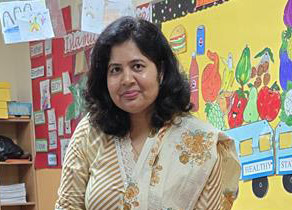
Screens are smart — but balance is smarter!
From online learning and chatting with friends to watching shows and gaming, screens are part of daily life. Technology helps us learn, connect, and explore — but too much screen time can strain our eyes, affect posture, disrupt sleep, and even impact mood. The good news? We don’t need to quit screens — we just need to use them wisely.
Care for Your Eyes
During long hours on my laptop in medical school, I experienced headaches, eye strain, neck and shoulder pain, and difficulty sleeping. Digital Eye Strain (or Computer Vision Syndrome) can cause blurred vision, dry eyes, fatigue, and trouble focusing. Combat it with the 20-20-20 rule: every 20 minutes, look 20 feet away for 20 seconds. Blink often, adjust screen brightness to match room light, and keep screens at arm’s length.
Quick tip: look outside — nature is the best “screen break”!
Set Screen-Time Limits
Screens can steal hours without us noticing. Take short breaks every hour, have “tech-free” times during meals or before bed, and try device-free days or evenings. Parents can encourage family activities like walks, games, or conversations to strengthen bonds.
Sleep and Screens Don’t Mix
Blue light from devices tricks the brain into thinking it’s daytime, making it hard to sleep. Turn off screens 30 minutes before bed, keep devices out of bedrooms, and try reading or soft music instead. Your melatonin works best in darkness!
Move More, Scroll Less
Sitting too long causes stiffness, low energy, and poor posture. Stand and stretch every 30–40 minutes, swap some screen time for outdoor activity, and try to limit recreational screen use to under 2 hours a day.
Keep Your Mind Healthy
Choose positive, educational content. Avoid comparing yourself to social media highlights, and use screens to create — try coding, drawing, or designing. Remember: screens should never replace real smiles and friendships.
Be a Digital Role Model
Parents, teachers, and students can inspire balance by managing their own screen habits and encouraging mindful breaks.
Balance is the key. Screens can be powerful tools when we control them, not the other way around. Let’s create a school culture that values learning, movement, mindfulness, and real-world connection.
Dr. Fanzila Anas
School Doctor



